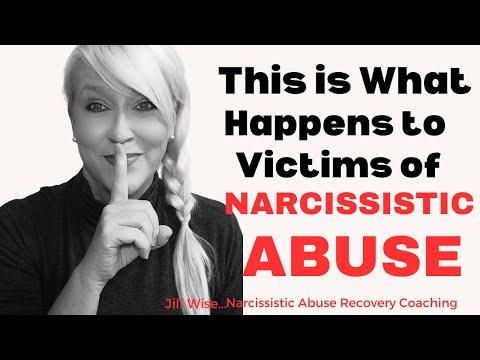
Greetings, readers!
Today, we embark on a journey to explore the intricate world of narcissistic abuse within the legal framework of the United Kingdom. In this informative article, we will delve into the legal implications surrounding this sensitive subject. However, it is important to note that while we strive to provide accurate information, it is always wise to cross-reference with other sources or seek guidance from qualified legal advisors.
Now, let us venture into the depths of understanding narcissistic abuse and its legal implications in the United Kingdom.
📋 Content in this article
Understanding the Legal Status of Narcissistic Abuse in the UK
Understanding the Legal Implications of Narcissistic Abuse in the United Kingdom
Narcissistic abuse is a widespread issue that affects many individuals in the United Kingdom. It is essential for victims to understand the legal implications surrounding this form of abuse in order to protect themselves and seek justice. This article aims to provide a comprehensive overview of the legal status of narcissistic abuse in the UK.
1. Defining Narcissistic Abuse: Narcissistic abuse refers to a pattern of manipulative behaviors used by individuals with narcissistic personality disorder to exert control and power over their victims. This can include emotional, psychological, financial, and even physical abuse.
2. Legal Recognition of Narcissistic Abuse: While the law does not specifically address narcissistic abuse as a separate offense, the UK legal system recognizes and addresses the various forms of abuse that may be associated with narcissistic behavior. These include domestic violence, harassment, coercive control, and many others.
3. Domestic Violence Laws: In the UK, domestic violence laws are designed to protect individuals who are subjected to abusive behavior within an intimate relationship or family setting. Victims of narcissistic abuse can seek legal protection through restraining orders, non-molestation orders, and occupation orders to keep their abusers away from them and their homes.
4. Coercive Control: Coercive control is a specific offense recognized under UK law. It involves patterns of abusive behaviors that aim to control and dominate victims in intimate or family relationships. Narcissistic abusers often employ coercive control tactics, such as isolation, financial control, intimidation, and manipulation, to maintain power over their victims.
5. Harassment Laws: Harassment laws in the UK prohibit unwanted and persistent actions that cause distress or fear in victims.
Understanding the Legal Remedies for Narcissistic Abuse in the UK
Understanding the Legal Remedies for Narcissistic Abuse in the UK
Narcissistic abuse is a form of psychological abuse where an individual with narcissistic traits manipulates, controls, and emotionally harms their victim. This type of abuse can have long-lasting and devastating effects on the victim’s mental and emotional well-being. If you are a victim of narcissistic abuse in the United Kingdom, it is important to understand the legal remedies available to you.
1. Civil Remedies:
– Non-Molestation Order: This is a court order that prohibits the abuser from contacting or harassing the victim. It provides immediate protection and can be obtained without the abuser’s knowledge.
– Occupation Order: This order can require the abuser to leave the shared home or prevent them from entering certain areas of the property. It aims to provide the victim with a safe living environment.
2. Criminal Remedies:
– Harassment: If the abuser’s behavior amounts to harassment, they can be prosecuted under the Protection from Harassment Act 1997. Harassment includes actions such as following, watching, or communicating with the victim.
3. Family Law Remedies:
– Child Arrangements Order: If there are children involved, this order can determine where they live and how much time they spend with each parent. It aims to protect children from any harm caused by the abusive parent.
– Prohibited Steps Order: This order can prevent the abuser from taking certain actions, such as removing the child from the country without permission.
– Specific Issue Order: This order resolves specific issues related to the child’s upbringing, such as their education or medical treatment.
4. Divorce and Financial Remedies:
– Divorce: If you are married to your abuser, you may consider filing for divorce. This legal process ends your marriage and addresses issues such as property division and financial support.
Title: Understanding the Legal Implications of Narcissistic Abuse in the United Kingdom: A Reflection on the Importance of Staying Current
Introduction:
In recent years, societal awareness of narcissistic abuse has grown significantly, shedding light on the devastating impact it can have on victims’ lives. This reflection aims to provide a brief overview of the legal implications associated with narcissistic abuse in the United Kingdom. While this article strives to provide accurate and up-to-date information, readers are strongly encouraged to verify and cross-reference the content to ensure its continued relevancy in a rapidly evolving legal landscape.
1. Defining Narcissistic Abuse:
Narcissistic abuse refers to a form of psychological and emotional manipulation employed by individuals with narcissistic personality traits. It involves exerting control, dominance, and coercive tactics over their victims to maintain power and satisfy their own needs. The consequences of narcissistic abuse can be severe, often resulting in long-lasting psychological trauma for those affected.
2. Civil Remedies for Narcissistic Abuse:
Victims of narcissistic abuse in the United Kingdom may seek civil remedies to address the harm they have endured. While there is no specific legislation dedicated solely to narcissistic abuse, existing legal avenues can offer potential relief. These may include:
